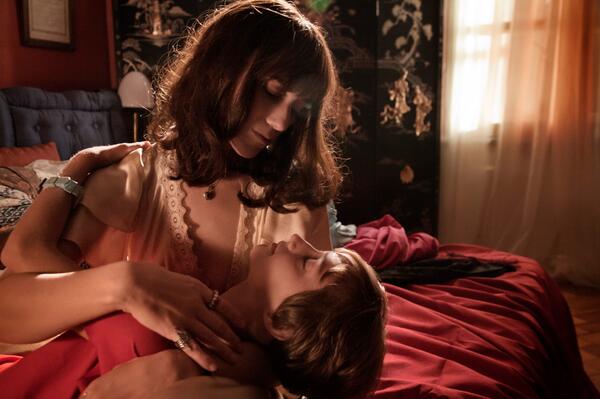
 Asia Argento’s Misunderstood is a coming-of-age film that more often than not relies on extreme stylization which sadly takes away from the heart of the story. Argento, is the daughter one of the most influential iconoclasts of horror cinema, and her film feels as if she’s trying too hard to live up to what audiences would expect from the daughter of the master of giallo. Her most notable influencer in Misunderstood is wunderkind Xavier Dolan, who himself happens to be a victim of too much stylization and too little substance. While this debate can spur endless conversations, the truth is that there are filmmakers who have been able to master preferring one over the other, without it affecting their oeuvre. The problem is when the filmmakers in question don’t seem to be in command of the film they’re making, which is the case with Argento, whose own voice seems to drown amidst the neons and pinks of her cinematography.
Asia Argento’s Misunderstood is a coming-of-age film that more often than not relies on extreme stylization which sadly takes away from the heart of the story. Argento, is the daughter one of the most influential iconoclasts of horror cinema, and her film feels as if she’s trying too hard to live up to what audiences would expect from the daughter of the master of giallo. Her most notable influencer in Misunderstood is wunderkind Xavier Dolan, who himself happens to be a victim of too much stylization and too little substance. While this debate can spur endless conversations, the truth is that there are filmmakers who have been able to master preferring one over the other, without it affecting their oeuvre. The problem is when the filmmakers in question don’t seem to be in command of the film they’re making, which is the case with Argento, whose own voice seems to drown amidst the neons and pinks of her cinematography.
Set in colorful 1984, the plot follows nine-year-old Aria (played by the extraordinary Giulia Salerno), a little girl who craves attention. Her self-absorbed parents, a languorous oversexed musician (Charlotte Gainsbourg in one of her finest performances yet) and a narcissist actor (Gabriel Garko), spend all their time passing each other custody of their daughter; seeing the little girl packing her bags and moving back and forth between houses becomes a tiresome motif in the film. Her siblings Lucrezia (Carolina Poccioni) and Donatina (Anna Lou Castoldi) can’t seem to stand her either, and all Aria has in the world is her best friend from school Angelica (Alice Pea) on whom she relies on as an eternal sidekick.
Written by Argento and Barbara Alberti, the film has some moments of touching, hilarious realism, as when Aria’s friend notices some schoolboys are following them and wonders “why are they following us, we don’t even have boobs!”, or almost any scene involving Gainsbourg’s loving monster of a mother, who herself seems to need an entire movie of her own. Argento sets family scenes as if they were part of a macabre comedy, all acute camera angles and overstuffed visual layers, but when she’s not trying too hard to pull off a unique visual style, she ends up delivering bittersweet moments that remind one of Amarcord.
The film’s major issue is that we never really know what we’re supposed to think of Aria, who seems to be a composite of Argento’s own childhood (despite the one letter difference in their first names) and also a child from hell, who never stops to think how her actions can affect others. If the film’s intention was to give us a bonafide child anti-heroine, something which in itself would’ve been remarkable, it fails because Aria is too capricious, too unstable. How can she claim to be misunderstood when not even she seems to know what she wants?